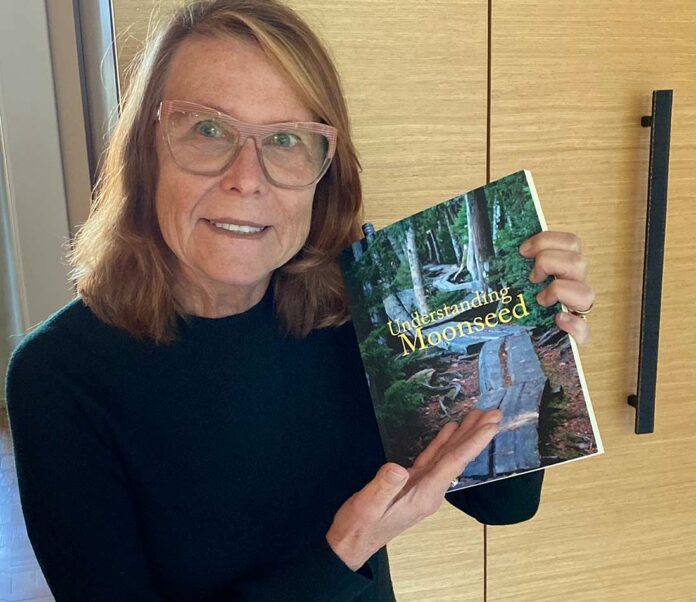
Moonseed is a plant native to midwestern North America, a twirling vine that produces grape-like fruit that is toxic to humans. But the Native Americans were able to repurpose the plant for medicinal uses.
How something deadly can transform into a healing property was the inspiration behind Los Gatos resident Mary Pacifico Curtis’ recently released memoir, “Understanding Moonseed.”
When her first husband, Doug, passed away from pancreatic cancer nearly 15 years ago, Mary said she began thinking deeply about what really matters in life, and what she wanted to do with her life.
Curtis, knowing she was a writer at heart, began pursuing this passion. When both daughters headed to college, Curtis did the same, earning a master’s of fine arts in creative writing from Goddard College.
“That’s the underlying theme,” Curtis said of her memoir. “The pain in our lives can also be healing in some way.”
A series of deeply personal essays she wrote shortly after Doug’s death were never published. But of the roughly 60 essays she has written since then, many found their way into “Understanding Moonseed.”
“Once when we talked about the future, Doug said cancer would get him, and I replied that heart would get me,” she writes in the memoir. “We couldn’t know, but it was almost as if we did in those early years. We would forget that conversation until a new future appeared: a pain, a moment, a mass, a careening detour from all that we had created and looked forward to together. Suddenly in a disease-defined time capsule, finite in measure we did not know, a story of love would become one of loss, transformation and survival.”
Curtis is the founder of Pacifico, a Silicon Valley-based public relations and branding firm that counts global technology leaders among its clients.
In “Understanding Moonseed,” Curtis writes that she started Pacifico “at the ripe old age of 24—just two years and two jobs after moving to California.”
“In Silicon Valley, young people started companies, unlike New York where I had expected to become an entrepreneur when older and with credible grey hair,” she writes.
Curtis said that “Understanding Moonseed” follows a chronological path, with an arc that begins with grief and love, and moves through a journey of loss and rebuilding and back to love.
Recalling events that happened earlier in her life was not the only challenge. Curtis said she also needed approval from her two daughters before she published the book, which was eventually granted.
“I aim for the literary standard,” she said. “I also write poetry, which is the most difficult thing you can do.”
Her body of published work includes two books of poetry, “Between Rooms” and “The White Tree Quartet,” along with numerous pickups in literary magazines and anthologies. Her accolades include recognition as a 2012 Joy Harjo Poetry Finalist (Cutthroat Journal), 2019 Poetry Finalist in The Tiferet Journal, non-fiction finalist in The 48th New Millennium Writings contest and a 2021 non-fiction finalist in The Tupelo Quarterly Open.
“I expect another book of poetry to be out next year,” she said. “I have other books in me. I have wanted to do this since I was a little kid. Having wanted it for so long, I feel like I owe myself and my family the very best effort to be successful at it.”
Mary Pacifico Curtis will join three other poets in “Winter Words,” a virtual reading hosted by Los Gatos Town Poet Laureate Jen Siraganian, on Jan. 20 at 5pm. For information, visit losgatosca.libcal.com/event/8686604.
“Understanding Moonseed” is available on Amazon.









